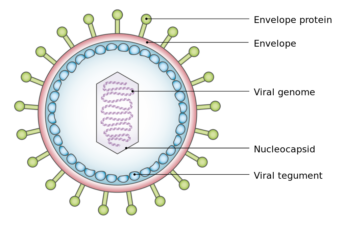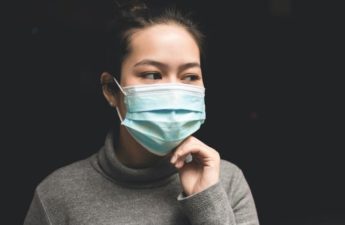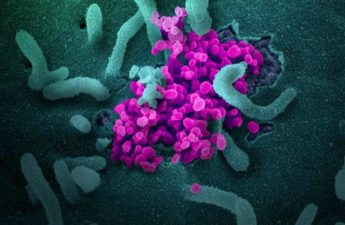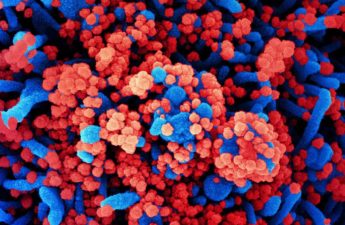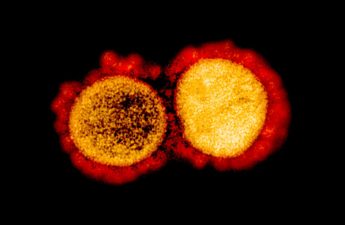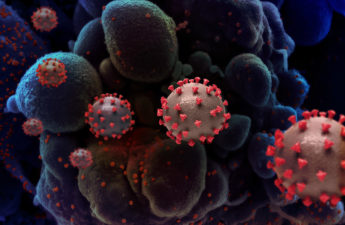Category: Coronavirus
Vaccination in pregnancy greatly reduces risk of severe illness and death from COVID-19, and protects babies up to 6 months after birth
Extensive evidence shows COVID-19 vaccinations in pregnancy are safe, when given at any time during the pregnancy.
Going long: Viruses linger with lasting impact
Herpes, HIV, Epstein-Barr and other viruses hang around, causing potential long-term health woes. Should ‘long COVID’ surprise us?
The Federal COVID-19 public health emergency declaration ends May 11. What does that mean for you?
This Thursday, the Federal Public Health Emergency Declaration will end, which means there will be changes to how some people receive COVID-19-related care, like testing, treatment, and vaccines.
COVID origins debate: what to make of new findings linking the virus to raccoon dogs
While this latest data is one additional piece of the puzzle that supports an origin of the pandemic linked to Wuhan’s animal trade, it is unlikely to provide irrefutable evidence.
Despite the incredible success of the COVID vaccines, and other public health efforts to bring outbreaks largely under control, the pandemic isn’t yet past tense. We are, however, moving out of the emergency response phase.
How do you make a universal flu vaccine?
University of Washington School of Medicine microbiologist Deborah Fuller explains the challenges, and how mRNA could offer a promising solution
Where are we at in King County with COVID-19?
A conversation with Seattle King County-Public Health’s Dr. Jeff Duchin, the county’s health officier and chief of Communicable Disease Epidemiology & Immunization Section.
Masking requirements in healthcare, long-term care, and correctional facilities to end April 3 in Washington state.
DOH infection prevention and control guidance continues to recommend masks for patients, healthcare providers, and visitors in healthcare settings. Licensed healthcare facilities are required to have infection prevention policies and programs consistent with CDC guidance.
Beware of Fraudulent Coronavirus Tests, Vaccines and Treatments—FDA warns
The FDA is particularly concerned that these deceptive and misleading products might cause people to delay, skip or stop appropriate medical treatment for COVID-19, leading to serious and life-threatening harm. It’s likely that the products do not do what they claim, and the ingredients in them could cause adverse effects (bad reactions) and could interact and potentially interfere with medications to treat many underlying medical conditions.
Act fast if you feel you have COVID symptoms, Medicare urges
Feeling sick? If you have any COVID-19 symptoms, act fast!COVID-19 antiviral treatments can help reduce your symptoms and keep you out of the hospital, but you must take them as soon as possible.
We can learn a lot about long COVID from years of diagnosing and treating chronic fatigue syndrome
While some long COVID symptoms are unique (microclots, lung scar tissue, or organ damage due to acute infection), most resemble the clinically very similar disorder myalgic encephalomyelitis, more commonly known as chronic fatigue syndrome.
Three in five long COVID patients have organ damage a year after infection
From this first set of scans, we found 331 participants (62%) had organ damage. Impairment of the liver, pancreas, heart and kidneys were most common (affecting 29%, 20%, 19% and 15% of participants respectively). These 331 participants were followed up six months later with a further MRI scan.
We found that three in five of the original study participants (59%) had impairment in at least one organ a year after infection, while just over one in four (27%) had impairment in two or more organs. So, for the vast majority of participants who had organ damage at six months, it was sustained until at least 12 months.
While in some cases participants with organ damage were no longer experiencing symptoms, organ impairment was associated with a higher likelihood of persistent symptoms and reduced function at 12 months.
We got some key things wrong about long COVID. Here are 5 things we’ve learnt
It can take months to recover lung function – and some people never do. COVID can increase the risk .of or worsen chronic diseases. Long COVID isn’t a single disorder. COVID shouldn’t be dismissed as a psychological problem
Black and Hispanic Americans found to experience more long Covid symptoms
Black and Hispanic Americans appear to experience more symptoms and health problems related to long COVI , a lay term that captures an array of symptoms and health problems, than white people, but are not as likely to be diagnosed with the condition, according to new research funded by the National Institutes of Health.
Genetics might explain why some people have never had COVID
. . . but we shouldn’t be too focused on finding out

